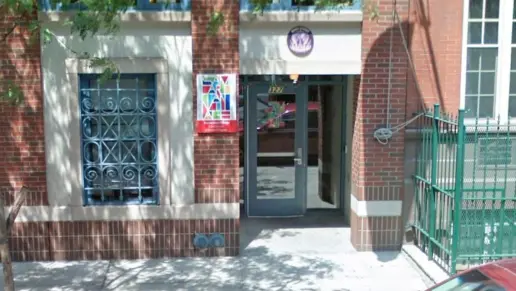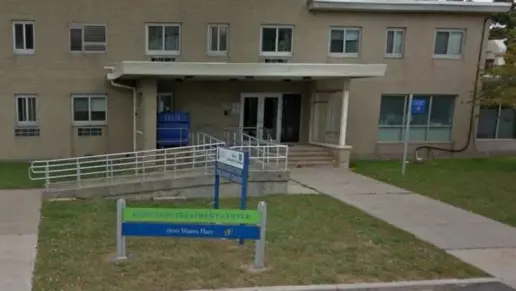About Center For Optimal Living
The Center for Optimal Living, with its team of twelve dedicated clinicians, is the only private treatment center that offers this unique form of therapy. The Center for Optimal Living was founded in 2011 in New York City.
The cornerstone of IHRP is a collaborative, therapeutic relationship that “starts where the person is.” We specialize in helping people figure out whether moderate, less harmful substance use, or abstinence is best suited for them., We tailor our services to help our clients pursue their chosen goal.
The Center for Optimal Living also provides trainings, supervision, and consultation to professionals and organizations. We are actively involved in advocacy efforts to support the needs of those impacted by mental health issues and substance misuse.
Our Approach
Addiction treatment has long been dominated by approaches that require complete abstinence. We recognize that not everyone is ready to commit to abstinence at the onset of treatment and we specialize in engaging people to reduce risk and make positive changes based on where they are ready to begin. By expanding the focus of treatment to include risk reduction and moderation, our aim is to reduce stigma surrounding addiction treatment.
Our approach utilizes harm reduction which aims to reduce the risks associated with drug and alcohol use in a collaborative and empowering way. Abstinence, moderation, and safe use practices are embraced within the umbrella of harm reduction. We understand how shame and stigma may prevent people from seeking help and realize how important the therapeutic relationship is. We view that as a critical foundation of our work and strive to create a safe and non-judgmental environment where our clients can begin to make positive and lasting changes.
The Center for Optimal Living is a treatment and training center for addiction and mental health issues. Our approach utilizes Integrative Harm Reduction Psychotherapy (IHRP), developed by our founder and director, Dr. Andrew Tatarsky.
Rehab Score
Other Forms of Payment
Private insurance refers to any kind of healthcare coverage that isn't from the state or federal government. This includes individual and family plans offered by an employer or purchased from the Insurance Marketplace. Every plan will have different requirements and out of pocket costs so be sure to get the full details before you start treatment.
Self-pay involves paying for treatment out of your own pocket. You can use savings or credit, get a personal loan, or receive help from family and friends to fund your treatment. If you don't have insurance or your insurance plan doesn't cover a specific program, self-pay can help ensure you still get the care you need.
Addiction Treatments
Levels of Care
Treatments
A combined mental health and substance abuse rehab has the staff and resources available to handle individuals with both mental health and substance abuse issues. It can be challenging to determine where a specific symptom stems from (a mental health issue or an issue related to substance abuse), so mental health and substance abuse professionals are helpful in detangling symptoms and keeping treatment on track.
Programs


Clinical Services
Cognitive behavioral therapy (CBT) in New York is a short term therapeutic method used to treat substance use and mental health disorders. CBT typically lasts from five to 20 sessions, based on the individual's needs.
During dialectical behavior therapy in New York, you and your therapist will look for triggers and patterns that are guiding your emotions. This involves keeping a diary of your emotions and situations and sharing this each week with the therapist. This information will determine what you work on in each session.
Group therapy is any therapeutic work that happens in a group (not one-on-one). There are a number of different group therapy modalities, including support groups, experiential therapy, psycho-education, and more. Group therapy involves treatment as well as processing interaction between group members.
In individual therapy, a patient meets one-on-one with a trained psychologist or counselor. Therapy is a pivotal part of effective substance abuse treatment, as it often covers root causes of addiction, including challenges faced by the patient in their social, family, and work/school life.
Introduced in 1983, motivational interviewing is a method to help clients commit to change. It's based on the philosophy that change is hard, and clients must explore their own options and come to their own conclusions rather than receive warnings or advice from the therapist.
Trauma therapy involves working through the psychological and emotional impact of a traumatic event. You learn to identify the triggers and develop coping mechanisms that build a sense of safety and trust in yourself.
You can participate in couples therapy to focus on a specific problem in your relationship or for general strengthening of the relationship. This therapy aims to help you improve communication, address conflict, and grow in affection for one another.
Family therapy helps individual members of the family unit navigate the complexities of addiction. Therapists provide you with the tools you need to improve communication skills and conflict resolution. When families work together, they can support their loved one's recovery and help to restore balance and harmony within the household.
Amenities
-
Residential Setting
-
Private Rooms
Contact Information
370 Lexington Avenue
Suite 500
New York, NY 10017


